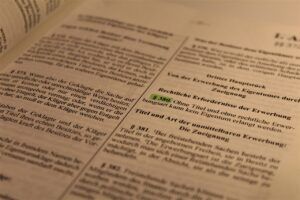Practical Guide
Coronavirus Panic and Psychosis in the Lombardy Region
The arrival in Italy, especially in Lombardy, of the much-feared Coronavirus, scientifically called COVID-19, is now the focus of attention of the Italian and international media of the last period.
The main pandemic risks, as known, are above all in the frequentation of public places where the masses are concentrated: underground and means of transport in general, meeting places and places intended for events (cinemas, theaters, stadiums, sports centers), schools and universities, and of course … the workplace.
So what are the measures employers – whatever business they carry out – should take in a situation like this?
It should be indicated in advance that, in accordance with current legislation (Legislative Decree 81/2008), the responsibility for protecting workers from biological risk lies with the employer, with the collaboration of the competent doctor.
Recent developments indicate that all employers must take urgent action, regardless of the sector they belong to.
Indications for Operators of Services/ Businesses in Contact with the Public.
On 3 February 2020, the Ministry of Health, with directive No. 3190, provided indications to all operators who for work reasons are in daily contact with the public.
For these categories in particular, the Ministry in this directive prescribed:
“It is considered sufficient to adopt the common preventive measures for the spread of respiratory diseases, and in particular:
- Wash your hands frequently;
- Pay attention to surface hygiene;
- Avoid close and protracted contracts with people with flu-like symptoms;
- Take any further preventive measures dictated by the employer. “
If, during the working activity, you come into contact with a subject who responds to the definition of a suspect case, the Ministry recommends contacting health services, indicating that it is a suspect case for nCoV. Pending the arrival of the sanitary workers, these are the instructions:
- “Avoid close contact with the sick person;
- If available, provide a surgical mask;
- Wash your hands thoroughly. Pay particular attention to the body surfaces that have possibly come into contact with the patient’s fluids (respiratory secretions, urine, feces);
- Have the used paper tissues disposed of in a waterproof bag directly by the patient. The bag will be disposed of in one with the infected materials produced during the emergency activities of the rescue personnel. “
The Ministry has invited all employers involved in services / exercises in contact with the public to disseminate these measures to their employees.
Recent developments have to further measures for employers. Large companies and businesses are also involved.
However, as of February 24, 2020, the situation of contagions in Lombardy has degenerated drastically, reaching a number of test-positive people close to a hundred. Therefore employers have adopted additional measures in addition to those already prescribed by directive n. 3190 of the Ministry of Health, which in any case remain valid and mandatory.
In fact, there have been cases of contagion in companies with many employees, which is why the Lombard multinationals must be prepared.
In fact, on 23 February 2020, Decree Law no. 6 of 23.02.2020 was issued “Urgent measures regarding the containment and management of the epidemiological emergency from CODIV-19”, issued specifically to deal with the contagion emergency in the following municipalities: Codogno, Castiglione D’Adda, Casalpusterlengo, Fombio, Maleo, Somaglia, Bertonico, Terranova dei Passerini, Castelgerundo and San Fiorano.
In this Law Decree, due to the ongoing health emergency, citizens are prohibited from accessing these municipalities. For residents of the municipalities indicated instead, the ban on removal is prescribed.
Furthermore, any form of meeting, public or private, is forbidden, be it for play, religious, sporting, cultural, even in places closed to the public. School activities, university activities, cultural places (museums, cinemas, theaters) are suspended.
The Decree, regarding companies, is very clear: “suspension of working activities for companies, with the exception of those that provide essential and public utility services and those that can be performed at home;
suspension or limitation of the performance of the work activities in the municipality or area concerned as well as the work activities of the inhabitants of said municipalities or areas carried out outside the municipality or the indicated area, except for specific exceptions, to the limits and methods of carrying out the agile work. “
To the aforementioned instructions for employers, there is a further ordinance of the Ministry of Health in agreement with the President of the Lombardy Region, issued yesterday, 23 February 2020.
This ordinance, without prejudice to what is already provided for the municipalities indicated, adds further instructions for those who conduct commercial activities.
The same will in fact undergo the following restrictions, currently valid until March 1, 2020, unless further extension:
– Bars, night clubs and entertainment establishments: closing from 18 to 6.00.
– Shops inside shopping malls and markets: total closure on Saturdays and Sundays, with the exception of grocery stores.
– Fair events: closing.
The application of Agile Work in Risk Areas
Among the containment measures indicated above, there is the application of “agile work”, or “smart working”, adopted urgently by most companies, small and large, in Milan and Lombardy. During the weekend of 22 and February 23, these companies promptly emailed their employees by inviting workers to work from home until the end of the week.
This measure was initially contained in Article 3 of the Prime Minister’s Decree of 23 February 2020:
“The agile working method disciplined by articles 18 to 23 of the law 22 May 2017, n. 81 is applicable automatically to any employment relationship within areas considered at risk in situations of national or local emergency in compliance with the principles dictated by the aforementioned provisions and also in the absence of the individual agreements provided for therein “.
However, these provisions have already been superseded by Article 2 of the Decree of the President of the Council of Ministers of 25 February 2020, which indicates the deletion of the previous Art. 3 of the Decree of 23 February 2020, eliminating the automaticity of the application of agile work therefore leaving this provision to the employer’s decision.
In particular, it reads:
“1. The agile working method governed by articles 18 to 23 of the law 22 May 2017, n. 81, is applicable provisionally, until March 15, 2020, for employers with registered or operational headquarters in the Regions of Emilia Romagna, Friuli Venezia Giulia, Lombardy, Piedmont, Veneto and Liguria, and for workers residing or domiciled therein carry out work outside these territories, at any subordinate employment relationship, in compliance with the principles dictated by the aforementioned provisions, even in the absence of the individual agreements envisaged therein.
The disclosure obligations pursuant to art. 22 of the law 22 May 2017, n. 81, are acquitted electronically also by using the documentation made available on the website of the National Institute for Occupational Accident Insurance.
- The art. 3 of the Prime Minister’s decree of 23 February 2020 is deleted. “
Employees Traveling or Transfered to Risk Areas
What to do instead if the company has ordered the transfer or transfer of its employees to the areas at risk?
Even in these cases, obviously the employer has in any case the general obligation to protect the health of its employees.
In cases of posting or travel, situations where the employee is temporarily abroad or in a place other than his usual place of work, a solution could be to facilitate the return of the worker to limit exposure in the area at risk and therefore avoid its contagion.
For workers returning from China these days, or more generally from areas at risk as reported by the Ministry of Health, the employer should provide for an agile period of work after returning.
Normal salary where the employer chooses the suspension from work:
It is good to clarify that in any case, employers can unilaterally decide to order the temporary suspension of work.
However, in these cases, since this suspension is not linked to causes dependent on the workers, their remuneration will not be changed.
Essential public services and commercial businesses for basic necessities:
Obviously, provisions have also been made for those who work in the field of essential public services and those who work in businesses that sell basic necessities.
The aforementioned Law Decree of 22 February deals with these two hypotheses, establishing:
“closure or limitation of the activity of public offices, operators of public utilities and essential public services referred to in articles 1 and 2 of the law of 12 June 1990, no. 146, specifically identified;
- l) provision that access to essential public services and businesses for the purchase of basic necessities is conditional on the use of personal protective equipment or on the adoption of particular precautionary measures identified by the competent authority; “
First of all, let’s clarify the differences between “utilities and essential public services” and “commercial establishments for the purchase of basic necessities”.
The former, defined in articles 1 and 2 l. 146 of 12 June 1990, “considered essential public services, regardless of the legal nature of the employment relationship, even if carried out under a concession or by convention, those aimed at ensuring the enjoyment of the rights of the person, constitutionally protected, to life, health, freedom and security, freedom of movement, social assistance and social security, education and freedom of communication. “
In particular:
- a) marital status and electoral service;
- b) hygiene, health and care activities;
- c) activities to protect personal freedom and public safety;
- d) production and distribution of energy and basic necessities, as well as the management and maintenance of the relative systems, limited to what concerns their safety;
- e) collection and disposal of municipal and special waste;
- f) transport;
- g) services relating to public education;
- h) staff services;
- i) cultural services.
On the other hand, “businesses for the purchase of basic necessities” are those where the food and non-food goods that are indispensable for daily life and cannot be replaced with other different products are produced and / or distributed.
The workers employed in the essential services – reads the order and the subsequent indications of the Ministry of Health – are admitted to work after daily verification of the state of health, with regard to the symptoms and signs of COVID19 by employers.
The assessment of the maintenance and / or modification of these measures is carried out on a daily basis jointly by the Coordination Table of the Lombardy Region jointly with the central Authorities.
How to Manage Workers Who Do Not Go to Work
Mandatory quarantine: if an employee of the company presents the symptoms of Coronavirus, it will be appropriate to instruct themto stay at home for a period of at least two weeks of observation.
This is an event comparable to other cases of hospitalization for pathologies.
In this case, under the labor law discipline, their absence must be regulated under the forecasts and institutions of the disease, with obvious protection and the right to maintain one’s job.
Voluntary quarantine: if the worker does not present symptoms, but decides to stay at home prudentially, in the areas covered by the aforementioned ordinance, it would be an objective prudent behavior, and the employer would not have justified a reason to provide for recall specification.
But be careful: Fear is not protected
If, on the other hand, the worker does not go to work out of mere fear, and not because he receives indications to that effect from the authorities (or from the employer), then in this case there is no justification for refusing to go to the workplace.
In this case, therefore, there is a real unjustified absence from the workplace, a circumstance that allows the employer to take disciplinary action.
Avv. Cristiano Cominotto
Dr. Arianna Pagnoncelli




